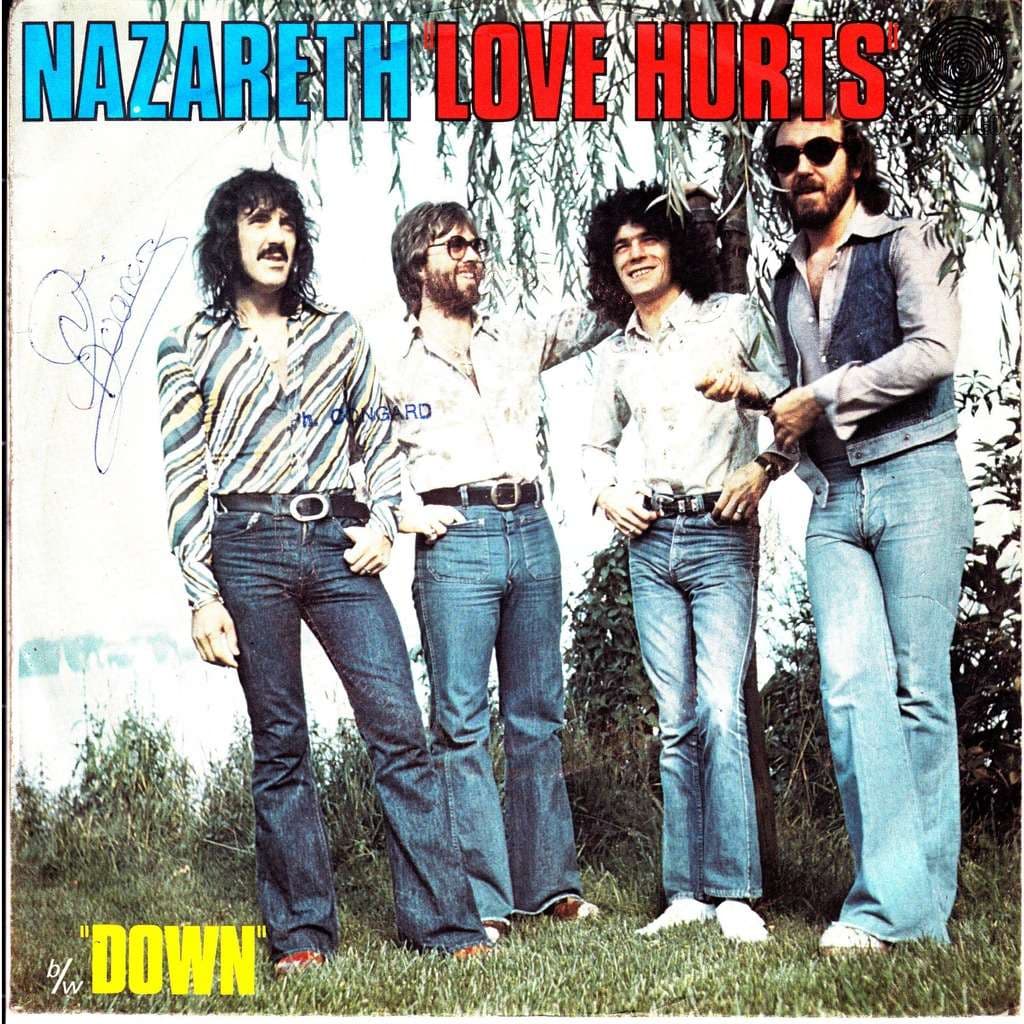
A Heart-Wrenching Ballad That Redefined Rock Ballads
“Love Hurts” by Nazareth is one of the most enduring power ballads in rock history, a song that taps into the universal pain of heartbreak with raw, emotional intensity. Released in 1974 as part of their album Hair of the Dog, it became the Scottish rock band’s signature song, earning them international fame and solidifying their place in the annals of rock music.
Though originally written by Boudleaux Bryant and first recorded by the Everly Brothers in 1960, it was Nazareth’s version that transformed the track into a global phenomenon. Their interpretation took the song from its country roots and infused it with rock sensibility, driven by Dan McCafferty’s raspy, anguished vocals and a sparse yet powerful arrangement that accentuated the song’s emotional weight.
The single achieved massive success worldwide, reaching #8 on the Billboard Hot 100 in the U.S. and topping charts in several countries, including Norway, where it held the #1 spot for 14 weeks. Its crossover appeal introduced Nazareth to audiences beyond the traditional rock sphere, proving that a hard rock band could master vulnerability without losing their edge.
The power of “Love Hurts” lies in its simplicity and universality. The lyrics speak plainly of love’s duality—its ability to bring joy and, inevitably, pain. McCafferty’s soulful delivery captures the bittersweet essence of the song, transforming it into an anthem for anyone who has experienced the sting of unreciprocated or lost love. The vulnerability in his voice, paired with the hauntingly beautiful guitar solo by Manny Charlton, creates an atmosphere of raw emotion that resonates deeply with listeners.
For Nazareth, “Love Hurts” marked a departure from their usual hard rock style, showcasing their versatility as musicians. The song’s success also brought a broader audience to their harder-edged tracks, cementing their place in rock history. Despite being a cover, it is widely regarded as the definitive version of the song, overshadowing both the Everly Brothers’ original and subsequent renditions by other artists.
Over the decades, “Love Hurts” has maintained its relevance, becoming a staple of classic rock radio and finding new life in movies, TV shows, and commercials. Its timeless message ensures that it continues to speak to new generations of listeners, a testament to its emotional depth and universal appeal.
For fans of Nazareth and lovers of poignant, heartfelt rock ballads, “Love Hurts” remains an unforgettable masterpiece. It is a song that doesn’t just describe the pain of love—it makes you feel it, serving as a powerful reminder of love’s beauty and its inevitable scars.